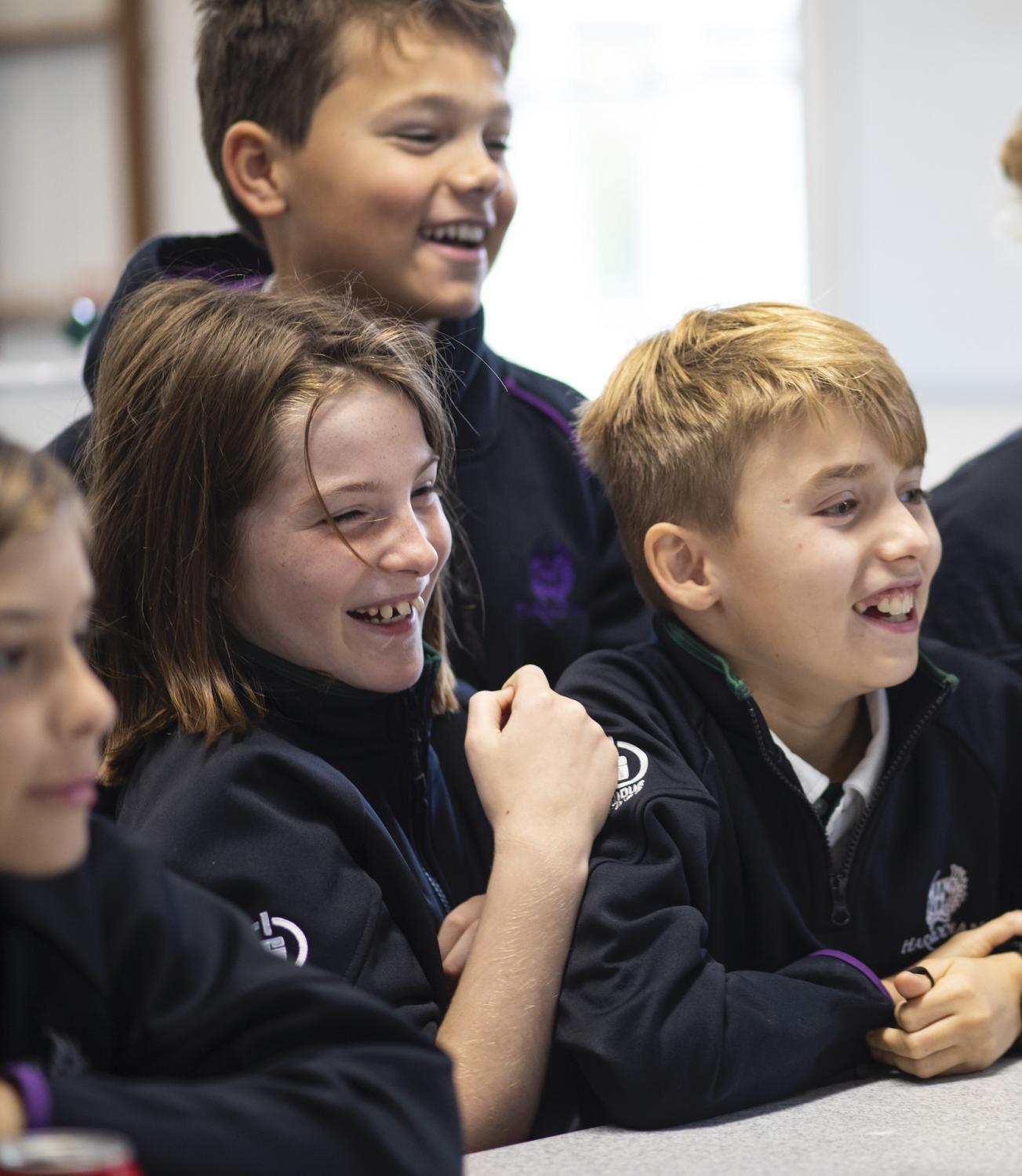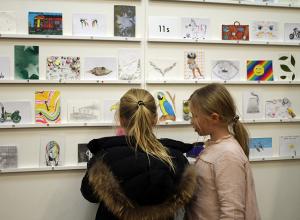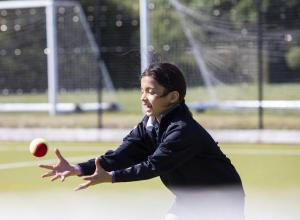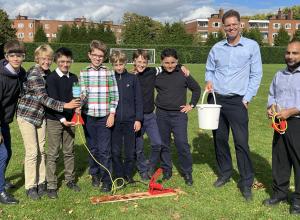
How do we get Harrodian pupils to look forward with optimism, to look back with satisfaction and to feel content, asks Andy Woodward
There has been a great deal on this blog about the value of adversity, of challenge, of making mistakes… and I meant it all! But no one wants that to be the whole picture, all the time. No - it is reasonable and natural to hope that we and our children might experience actual happiness. We want them to look forward with optimism, to look back with satisfaction, and to feel basically secure and content in themselves... at least some (most?) of the time. But how to get there? And why, considering all that the average Harrodian pupil has going for them, does it appear quite so tricky?
We want pupils to look forward with optimism, to look back with satisfaction, and to feel basically secure and content in themselves. But how to get there?
Andy Woodward
The context for this is well established. I won’t dwell on it here, because I want this to be a positive post. But… yes, there are many young people right now who would seem to be far from happy, day to day. And the state of the world at present is such that happiness itself might even seem a self-indulgent aim. Perhaps righteous anger would be more fitting? And yet, Dear Reader, I would contend that it is still worth daring to fight for. Not so we can shut out the noise of the world and insist it’s all just kittens and rainbows… But because, in addition to the inherent value of personal wellbeing, those who do manage to gain and retain a measure of inner peace and equanimity are then better able to look outward, think constructively, help others and retain a sense of purpose. After all, it is exhausting and time-consuming being miserable!
Well, let’s start by reaching for our wallets… Can we throw money at the problem? The question has in fact raised a great deal of debate. And, in recent years, the consensus seemed to have become clear: yes, money does make people happier… but only up to a point. Indeed, the famous 2010 Princeton study behind this finding put the sweet spot at $75k (approx. £50k); up to here, life satisfaction did, on average, improve… but beyond that point, any further wealth apparently did nothing to increase one’s happiness and, eventually, at a certain point, even appeared to diminish it. However, and disappointingly for many who took comfort in the thought of the wealthy weeping into their down-feather pillows, a significant 2021 US study by the National Academy of Sciences has now contended that, even above and far beyond this magical $75k point, extra in the bank may well continue to mean extra contentment and good cheer. Literally, ‘the more the merrier’. Which perhaps makes sense, considering how much anxiety is caused by not knowing how one might provide for family, or safeguard the future. Money in the bank gives some insulation against this, in addition to increased opportunities to fund some of those other things known to benefit mental health; exercise, hobbies, green space, a healthier diet, and the prospect of holidays… not to mention the option of paying for good therapy if it still goes wrong!
Ultimately, when it comes to happiness, there is no substitute for human connection and the assurance of unconditional love.
BUT here comes a bombshell from Dr Cheryl Rampage from Northwestern University in the US... It turns out that what is good for the parents isn’t necessarily good for their kids. In a compelling 2008 article, ‘The Challenge of Prosperity’, Dr Rampage argued that, while affluence was a good indicator of above-average physical and academic development among young children, it ‘changes from a protective factor to a risk factor’ once those children enter adolescence. At this point, it quickly became the case that affluent boys and girls (particularly girls) experienced well above-average anxiety. This was linked firstly to a heightened sense of pressure – private school teens’ perceived obligation that they must ‘be the best’, academically, physically and socially… sometimes exacerbated by a sad sense that parental love and approval may be based on them achieving these things. Because, to quote the study again, problems arise ‘when parents over-focus on excelling rather than participating, and on winning rather than engagement’. So high are the stakes for the child who tries but fails, that this tends to result in either a ‘play it safe’ under-achiever, or a perpetually anxious over-achiever, neither of whom is likely to see their time at school in a positive light. The second factor cited among wealthier families is the increased risk of children’s isolation from parents – whether because of long work hours, the high number of extra-curricular activities that can erode family time, or because of the larger homes in which teenage children may have their own bathroom, desk, television and computer, and therefore have less need for interaction with others in the home - the loss of the all-important ‘family dinner-time’ being noted. In fact, Dr Rampage’s conclusion was that ‘the very best predictor for healthy adjustment in both male and female adolescents is closeness to parents’ (as opposed to it being found in the accumulation of possessions, which rarely seems to help nearly as much as advertisers would have us believe…).
A deeper happiness – that is, a satisfaction based in being loved and accepted – may in fact lurk after all beneath the choppy waves of mood and emotion.
That study seems therefore to strengthen the suspicion that those things that make our children happy ultimately remain the same as they ever were, and are pretty much the same for everyone, once the fundamentals of food, shelter, warmth and safety are secured. Ultimately, when it comes to happiness, there is no substitute for human connection and the assurance of unconditional love. To be materially overfed but emotionally underfed is no recipe for fulfilment. Across the social spectrum, young people consistently point to shared experiences with family and friends as the happiest aspect of their lives. Beyond this, engaging in, and improving at, pastimes they love (as opposed to pastimes their parents think they should love!) and, yes, helping out others, are likely to aid wellbeing, as are all the usual worthy and true priorities of good sleep, fresh air, laughter, or intentional gratitude... But, when it comes to it, people make people happy.
And what if they’re still not? I know some among you who are loving and affectionate parents of popular and productive kids, and yet they’re not looking at all happy right now. For lots of reasons… Chemical reasons? Traumatic events? Imminent exams? Friendship glitches? Or for no reason at all (as my recent ‘Everybody Hurts… Sometimes’ post recently pointed out)? The truth is that life is a rocky road, and the hormones of adolescence make it rockier, so no one gets to entirely swerve the blues. BUT if our children have homes that, whatever the exam results, whatever the material circumstances, are characterised by warmth, contact, communication and affection… well then we can retain confidence in the likelihood that our children will consider it their safe place – their shelter on a rainy day. A deeper happiness – that is, a satisfaction based in being loved and accepted – may in fact lurk after all beneath the choppy waves of mood and emotion – a bedrock waiting to be revealed once more when the flood of hormones recedes…
Let’s help our kids learn to count their blessings, just as we helped them gather those treasures in the first place.
In truth, this is still where I think I sit, even at the ripe old age of 43. The first feeling to hit me upon waking is rarely contentment – it’s more likely to be mild panic at the day’s challenges to come (sometimes not so mild!). But beneath it, accessible with a bit of mental digging, is what I believe to be happiness… a deeper contentment based on my home and family, my vocation, friends, faith and the fact there is football and good music in the world. Indeed, for most of us, there are a great many blessings to be counted... So let’s help our kids learn to count them, just as we helped them gather those treasures in the first place. Happiness is not out of the question. And it’s worth striving for; for the sake of them, us, and others they impact. It may even be closer to hand than we imagine.

Andy Woodward is Deputy Head of Harrodian Senior School. He welcomes feedback to this blog at website@harrodian.com







